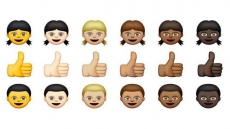Advertisements on the social networking site Facebook act as a teaser similar to a movie trailer and are more strongly associated with the brand than the ads on television, a study has found.
The research by Facebook and marketing agency Neuro-Insight found how consumers respond to television ads that they have already seen either on Facebook or on TV, SocialTimes.com reported.
The findings showed that while printed ads on Facebook were able to increase the brand impact, people who watch advertisements on television were more likely to make purchase decisions after viewing the ad on day two.
For the study, Neuro-Insight divided a group of 100 Facebook users in the US -- between the ages of 21 and 54 -- into two groups.
The agency used two different types of ads during testing: video ads originally produced for TV and video ads that were optimised for Facebook -- with the latter shorter in length and including branding early on.
One group watched a TV show with ads on the first day, while the other browsed their Facebook News Feeds.
On the second day, both groups watched the same ads during a TV show.
During the test, participants in each group wore EEG caps that measured responses correlated with real behaviour from different parts of their brains.
The study found that participants who were primed with the TV ad performed below the 50th percentile for memory encoding while participants who were primed with the ad on Facebook scored above average for memory encoding.
When participants were primed with the optimised videos on Facebook, they were more strongly associated with the brand than the repurposed TV ads, producing the greatest change in the memory encoding metric, it added.






